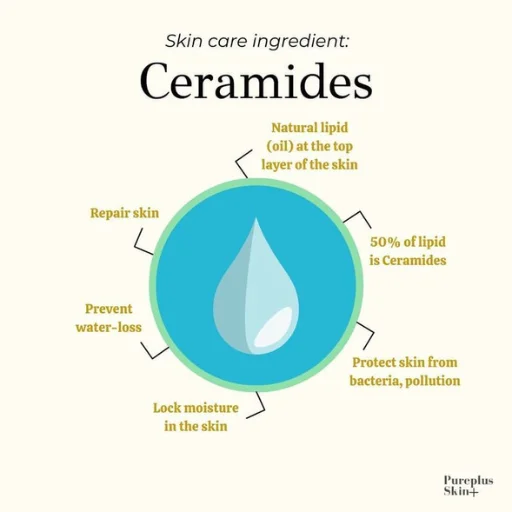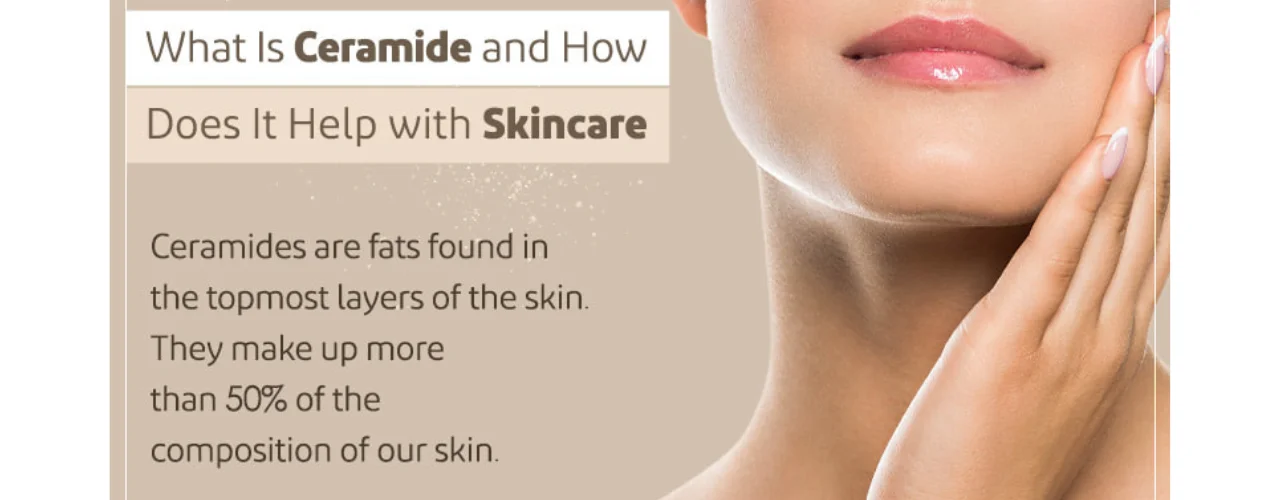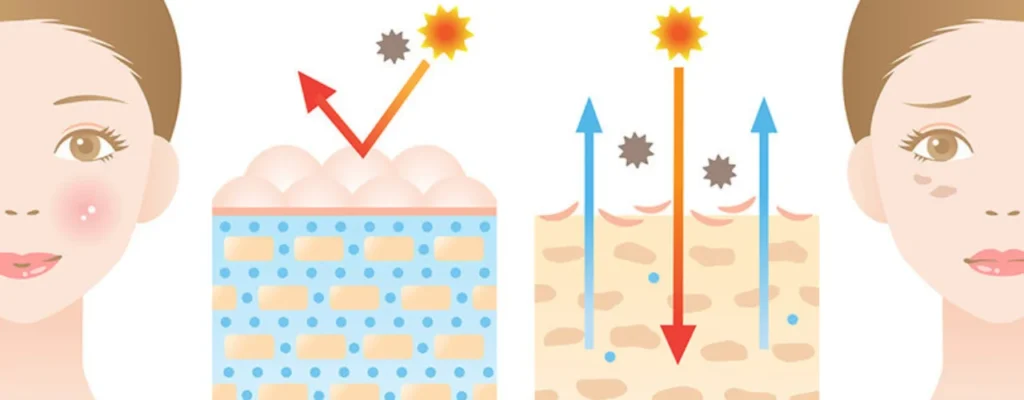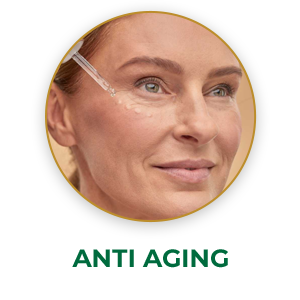Ceramides are fascinating molecules with important roles in both the human body and the world of skincare. Here’s a breakdown of what they are and what they do:
What are ceramides?

- Ceramides are a family of waxy lipid molecules found naturally within your skin cells. They make up a significant portion of the stratum corneum, the outermost layer of your skin, accounting for 30-50% of its composition.
- They act like glue, binding skin cells together and forming a protective barrier against external threats like pollutants, allergens, and irritants.
- There are 12 different types of ceramides, each with slightly different structures and functions.
What do ceramides do?
Ceramides play several crucial roles in maintaining healthy skin:
Barrier Function:
- Think of ceramides as the “mortar” between your skin cells. They act like a sealant, creating a barrier that:
- Prevents moisture loss: Ceramides help trap water within your skin’s layers, keeping it hydrated and plump.
- Shields against external aggressors: They protect your skin from harmful substances like pollutants, toxins, and allergens.
- Reduces irritation: A strong barrier keeps irritants out, preventing redness, itchiness, and other sensitivities.
Cellular Function:

- Beyond the barrier, ceramides:
- Support cell signaling and communication: They help skin cells function properly and communicate with each other.
- Promote cell differentiation: They encourage skin cells to mature and perform their specialized tasks.
- Influence cell proliferation: They play a role in regulating cell growth and renewal.
Overall Skin Health:
- Maintaining optimal ceramide levels contributes to:
- Smooth, supple skin: Healthy hydration prevents dryness and flakiness.
- Stronger, resilient skin: A fortified barrier makes skin less susceptible to damage.
- Reduced signs of aging: Ceramides support collagen production and protect against age-related changes.
Additional Points:
- Ceramide production naturally declines with age. This contributes to dry, sensitive skin and wrinkles.
- Skincare products with ceramides aim to:
- Replenish lost ceramides: Restoring the barrier function and improving hydration.
- Support your skin’s natural production: Some ingredients like niacinamide can stimulate ceramide synthesis.
Remember, ceramides are just one piece of the puzzle for healthy skin. A balanced skincare routine incorporating other essential ingredients like sunscreen and antioxidants is crucial for optimal results.
Why are ceramides important in skincare?
Ceramides are vital in skincare for several key reasons:

Protecting your skin’s barrier: Like a brick wall with mortar, ceramides act as the mortar between your skin cells, building a strong barrier that protects against:
- Moisture loss: They form a tight seal, preventing water from evaporating and keeping your skin hydrated and supple.
- Environmental aggressors: Pollutants, toxins, and allergens can irritate and damage your skin. Ceramides shield your skin from these external threats.
- Irritants: They minimize sensitivity and discomfort by keeping potential irritants at bay.
Maintaining healthy skin function: Beyond shielding your skin, ceramides play a crucial role in cellular processes:
- Cell communication: They act as messengers, ensuring proper communication between skin cells for optimal function.
- Cell differentiation: They guide skin cells to mature and specialize, performing their designated tasks effectively.
- Cell renewal: They regulate cell growth and renewal, contributing to a healthy turnover cycle for fresh, radiant skin.
Addressing concerns and enhancing appearance:
- Dryness and sensitivity: As ceramide levels decline with age, skin becomes drier and more prone to irritation. Replenishing them through skincare can alleviate these concerns.
- Wrinkles and signs of aging: Ceramides support collagen production, a key player in skin firmness and elasticity. Maintaining ceramide levels helps combat wrinkles and promote a more youthful appearance.
- Overall skin health: Healthy ceramide levels contribute to smoother, suppler, and more resilient skin, showcasing its natural beauty.

Additional benefits:
- Suitable for all skin types: Generally considered safe and non-irritating, ceramides can benefit various skin types, even sensitive ones.
- Versatility: Found in various products like moisturizers, serums, and cleansers, you can integrate them into your existing skincare routine.
While ceramides offer significant benefits, remember:
- A holistic approach is key: Combine ceramide-infused products with other essentials like sunscreen and antioxidants for optimal skincare.
- Consult a dermatologist: For personalized advice and targeted solutions, always seek guidance from a professional.
Incorporating ceramides in our skincare:
Incorporating ceramides into your skincare can be done in several ways, depending on your specific needs and preferences. Here are some key points to consider:

Choosing Products:
- Look for products explicitly labeled as containing ceramides. Be wary of generic claims like “moisturizing” or “barrier-repairing” without mention of ceramides.
- Pay attention to the type of ceramides used. Different types offer varying benefits. Look for ingredients like Ceramide 1, Ceramide 3, Ceramide 6-II, and sphingosine, commonly used in skincare.
- Consider the product type. They are most commonly found in moisturizers, but you can also find them in serums, cleansers, and even eye creams. Choose products based on your individual needs and target concerns.
- Check for additional beneficial ingredients. Ceramides often work well with other ingredients like hyaluronic acid, niacinamide, and fatty acids. Consider a product that combines them with other ingredients to address multiple skin concerns.
Application:
- Cleanse your skin thoroughly before applying any product. This removes dirt, oil, and makeup that could interfere with absorption.
- Apply your chosen ceramide-containing product according to its instructions. For moisturizers, use a dime-sized amount and massage gently onto your face and neck.
- Layer products appropriately. Apply lighter products like serums first, followed by heavier creams or moisturizers containing ceramides.
- Use ceramides consistently. Like any skincare ingredient, consistency is key to see results. Aim to use products with them daily, preferably both morning and night.
Risk and Complications:
Ceramides are generally considered safe and well-tolerated by most people when used in skincare products. However, it’s always important to be aware of potential risks and complications, even with widely used ingredients. Here’s a breakdown of what to consider:

Potential Risks:
- Allergic reactions: While uncommon, some individuals may have allergies to specific types of ceramides or other ingredients in the product. It’s crucial to conduct a patch test before applying any new product, especially if you have sensitive skin.
- Irritant reactions: Although they are soothing for most, even gentle ingredients can cause temporary irritation in certain individuals, especially if applied to compromised skin. Pay attention to any signs of redness, itching, or burning after using a product with this.
- Comedogenicity: Some forms of ceramides, like ceramide palmitate, can be slightly comedogenic for acne-prone skin. This means they might clog pores and contribute to breakouts. Opt for non-comedogenic ceramides like ceramide NP or AP if you have concerns.
- Over-reliance: While beneficial, relying solely on them for complete skin health isn’t advisable. A balanced skincare routine incorporating other essential ingredients like sunscreen, antioxidants, and actives tailored to your specific needs is crucial.
Complications:
- Improper dosage or formulation: Using overly concentrated ceramide products or formulations incompatible with your skin type can increase the risk of irritation or breakouts. Choose products formulated for your specific skin needs and follow recommended usage guidelines.
- Mixing with incompatible ingredients: Some active ingredients may interact negatively with ceramides, reducing their effectiveness or causing irritation. Consult a dermatologist if you’re unsure about combining them with other actives in your routine.
- Unrealistic expectations: They offer significant benefits, but they aren’t miracle cures. Be realistic about achievable results and understand that maintaining healthy skin requires a holistic approach beyond just one ingredient.
Remember:
- Always consult a dermatologist for personalized advice and address any specific concerns you might have about using ceramides in your skincare routine.
- Be mindful of your skin’s response and discontinue use if you experience any negative reactions.
- Choose high-quality products from reputable brands and pay attention to the type and concentration of ceramides used.
Final Thoughts:
Ceramides, the waxy heroes of your skin, are crucial for a healthy barrier, acting like the mortar between your cells to lock in moisture and shield against aggressors. They support cell function, promoting a youthful appearance and combating dryness, sensitivity, and wrinkles. While generally safe, patch testing is wise, and consider your skin type when choosing ceramide-infused products. Incorporate them consistently into your routine, alongside other essentials like sunscreen, for optimal results. Remember, ceramides are powerful allies, but a holistic approach is key to unlocking your skin’s full potential.
Derma and Dental Clinic:
Derma & Dental Clinic stands out with its team of experienced doctors backed by scientific evidence in their chosen fields. Their diverse range of medical-grade procedures offer tailored solutions for various skin and dental needs. You can confidently book your consultation online or by phone and embark on your journey towards healthier skin and a radiant smile.
Location: Bahria Town, Lahore
Specialties: Dermatology and Dental Care
Website: Derma.pk
For Consultation:
- Online at Dermatology.pk
- WhatsApp: +923205999650
- Phone: 03041115000



















